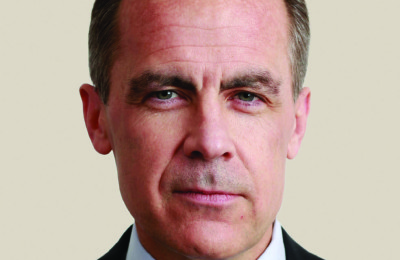
David Worsfold
Mark Carney, Governor of the Bank of England, enhanced his reputation for decisive action when he moved quickly to end the growing speculation about whether he would serve a full term before it got out of hand and unnerved vulnerable markets.
It was an admirable lesson in how not to let yourself become the story.
Carney has already successfully resisted being dragged into a distracting conflict with the new occupants of 10 and 11 Downing despite the attempts of the Prime Minister, Theresa May, former Chancellor Lord Lawson and sections of the media to create a row over the future of monetary policy, one that would have been extremely damaging if it had gained any momentum. May used her speech to the Conservative Party conference to warn of the “bad side-effects” from the Bank’s loose monetary policy and vowed to change it. She criticised a rootless “international elite”, which many saw as a swipe at the Canadian governor.
A week after May’s conference speech, Carney declared that he would not “take instruction” from politicians. “Politicians have done a very good job of setting up the system. Where it can be difficult sometimes is if there are political comments on our policies as opposed to political comments on our objective,” he told a seminar. That, at least from his perspective, drew a line in the sand on the argument.
Carney’s critics among the Brexiteers then turned their attention to the man himself by starting the speculation about whether Carney would extend his term as Governor to it full eight years.
To many this seemed a little premature as his first five years doesn’t conclude until mid-2018 but as soon as the speculation story started to gain strength, Carney acted. Typically, he acted on his own terms. He extended his term by just one year to the end of June 2019 so he could steer the UK’s monetary policy until its likely exit from the European Union. This makes sense.
He then followed that up with a series of economic forecasts – or rather re-forecasts – that made the story about the substance of economic and monetary policy rather than about personalities.
However, events around the UK’s departure from the EU continue to surprise and overtake everyone.
The High Court ruling that the activation of Article 50 must be subject to Parliamentary scrutiny came as a shock and has the potential to delay the final exit beyond the original target of March 2019. The decision is subject to an appeal to the Supreme Court in a few weeks’ time so this episode in the Brexit drama is by no means over.
If the Supreme Court upholds the High Court decision and Parliament gets its teeth stuck into the Article 50 debate and exercises detailed oversight of the Brexit negotiations, then it seems likely the start date will slip well beyond the current target of March next year.
Should this happen, it poses the question: What will Carney do?
He made much of the logic of staying until Brexit was complete and that logic has reassured the markets. Will he see through that logic and further extend his stay if the Brexit process drifts beyond June 2019?
The most likely answer is no, not least because the 51 year old governor has ambitions in Canadian domestic politics and the next federal elections take place in October 2019.
Of course, long before that time, the Treasury will have to start thinking very hard about a successor and is likely to look for someone rather different to Carney, certainly less obviously a member of those international elites May so clearly despises. He or she will be a Brit for sure.
Politically they will have to be closer to the new government too. The current governor was very much the appointee of George Osborne and closely associated with the now much-derided ‘Project Fear’ during the referendum campaign – though it is too early to say whether it is yet discredited.
A government committed to delivering Brexit and constantly talking up the opportunities it offers the UK economy will want one of its own installed in Threadneedle Street. So far, there has been little speculation as to who that might be. Perhaps that is not too surprising given the whirlwind of uncertainty unleashed by the High Court decision. A crucial element in that uncertainty is the growing speculation about the possibility of a General Election before May 2020. If that should happen, it could change the rules of the game yet again.
If the Prime Minister finds herself pushed into holding an early election – and there are plenty of complications to be addressed before that actually happens – the current opinion polls suggest the Conservatives would be returned with a very large majority. It would also install a government emboldened to deliver a Brexit more in tune with what seems to be the public mood, a key aspect of which is a rejection of established elites.
Those circumstances would make the choice of the next Governor even more interesting.
